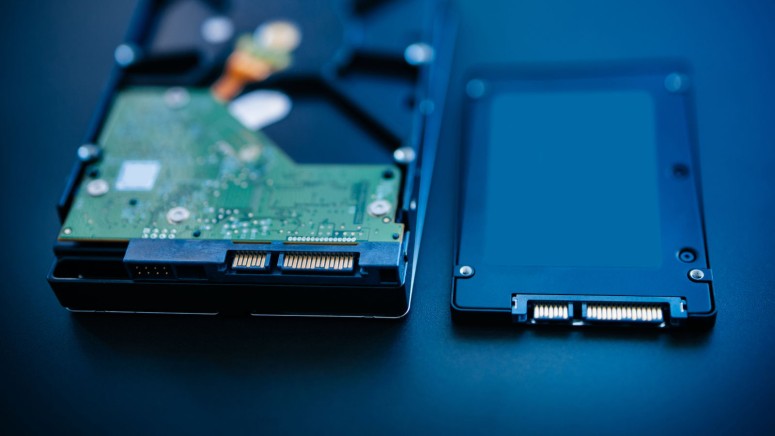
AMD Is Reportedly Working on a New Storage Acceleration Solution
- AMD has abandoned the StoreMI project in a recent announcement that went mostly unnoticed.
- The chipmaker aims to develop its very own, completely re-architected storage acceleration solution.
- AMD will need to produce something impressive to fight against Optane, and using RAMDisk as a basis could be the key to that.
AnandTech has recently noticed that AMD decided to drop support for StoreMI, the "intelligent storage acceleration for PCs" that was launched back in 2018. This project was aiming to introduce a solution similar to Apple's Fusion Drive, enabling SSD and HDD to merge and create a single logical volume. The whole point of hybrid disk type unification is to combine the blazing speeds of SSDs and RAM modules with the seemingly endless capacity of rotational HDDs. However, AMD announced the end of StoreMI, and in the same advisory, they are mentioning a new solution that's planned to be ready in the second quarter of 2020.
As the successful chipmaker states, StoreMI is essentially abandoned now, so they will stop providing downloads or technical and end-user support. All of the internal development resources will now be focused on the new solution, which will be re-architected from the ground up. This statement contains an interesting difference regarding StoreMI, as "internal resources" mean that AMD is working on something that is entirely under its ownership. StoreMI, however, was licensed from Enmotus, a California-based enterprise software company specialized in intelligent hybrid volume systems.
As Enmotus is marketing its own "FuzeDrive" solution, StoreMI was limited to logic volume sizes of up to 256GB in order not to undermine the original product. Thus, AMD may have decided that the time to shake off these limitations (and also the licensing costs) had come, so the question now is, what could the tech giant be preparing? TechRadar is trying to answer this question by focusing on "Radeon RAMDisk," a forgotten storage acceleration project that AMD launched seven years ago. RAMDisk enables the software-based creation of logic drives by using freed RAM space. The technology was even tentatively implemented in laptops, but it hadn't received much love and attention on AMD's camp.
Intel, on the other side, has developed the "Optane" technology, which is now a mature storage acceleration solution that has been deployed in laptops, servers, and data centers. That said, AMD needs an answer that will plug that hole, and an in-house solution to do the trick may be just around the corner. When that happens, it will be interesting to see the associated cost, the market coverage, platform support, and of course, the technical aspects of the solution.






